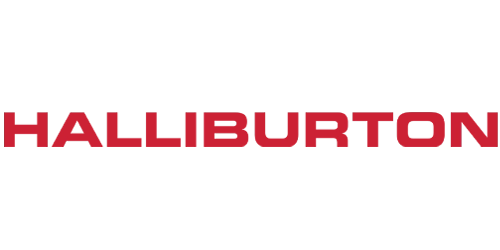
Halliburton, a global leader in energy services, provides innovative solutions to the oil and gas industry. Focusing on technology and sustainability, it offers expertise in drilling, completion, and production to optimize reservoir performance and maximize asset value worldwide.
COMPANY LINKS
TAGS
- CEI |
- DEI |
- ESG |
- Open Secrets |
- Pride Sponsor
Updated 7 months ago
How woke is Halliburton?
Introduction
Halliburton has built its reputation as one of the world’s largest oil field service companies, driving innovation in energy. Lately, however, this corporate giant might be trading its hard-earned grit for a trendy new badge of “wokeness.”
From diversity policies to LGBTQ+ initiatives, this company’s recent moves make us wonder: Is Halliburton aligning with progress or pandering to the latest cultural buzzwords? Let’s break it down.
Financial Contributions to Progressive Causes
Halliburton’s charitable efforts are no small potatoes. The company has raised over $4 million through its Charitable Foundation to support over 100 organizations. Their press release states, “The funds were distributed to organizations supporting education, health, and social equity initiatives.” That sounds nice, but “social equity initiatives” could mean anything from helping underserved communities to funding politically charged programs.
Their Sustainability Report also points to efforts aimed at “building a sustainable future through strategic partnerships.” Some might call it thoughtful giving; others could see it as ideological pandering.
Prioritization of DEI Policies
Halliburton wears its Diversity, Equity, and Inclusion (DEI) credentials like a badge of honor. The company proudly states, “We strive to foster a workplace that values diverse perspectives and experiences.”
One spokesperson claimed, “Our diverse leadership programs ensure equity in access to professional growth opportunities.” While this might seem like a win for inclusivity, critics argue that prioritizing identity over qualifications could dilute meritocracy. Isn’t the oil field a place where grit and expertise should matter most?
Mandatory Training Sessions
You know the drill if you’ve ever sat through a mandatory training session. At Halliburton, employees participate in workshops covering topics like unconscious bias. Their Sustainability Page states, “Our training programs aim to empower employees with tools to address implicit bias and foster a culture of belonging.”
Empowering? Sure, if you agree with the message. However, these sessions feel more like a lecture than a learning opportunity. It’s hard not to wonder: Are these workshops creating unity or sowing division?
Support for LGBTQ+ Initiatives
Halliburton actively celebrates Pride Month and funds programs for transgender youth mental health. They’ve stated, “Our Pride programs celebrate our diverse workforce and reinforce our belief that every individual deserves respect and recognition.” That’s a bold stance in the traditionally conservative oil industry.
They also partner with organizations like Grant Halliburton to support mental health programs for transgender youth. Admirable to some, sure. However, these moves can alienate employees and stakeholders with more traditional values. Is this inclusivity, or is Halliburton walking a tightrope that risks isolating part of its workforce?
Marketing and Branding
Halliburton’s branding has taken a sharp turn toward progressive messaging. A Yahoo Finance article highlights how the Halliburton Charitable Foundation reflects “corporate values centered on equity and inclusion.”
By spotlighting these efforts, Halliburton signals that it’s an agent of social change. However, this shift toward activism can be an unnecessary distraction for stakeholders who want an oil company to stick to drilling wells and refining processes.
Conclusion
Halliburton has leaned hard into the progressive playbook, from DEI initiatives to LGBTQ+ support. For those who applaud these moves, the company represents a forward-thinking giant embracing modern values. But for others, Halliburton is pandering to trends at the expense of its core mission. Whether you see these changes as bold leadership or woke overreach depends on where you stand.
Our rating is based

